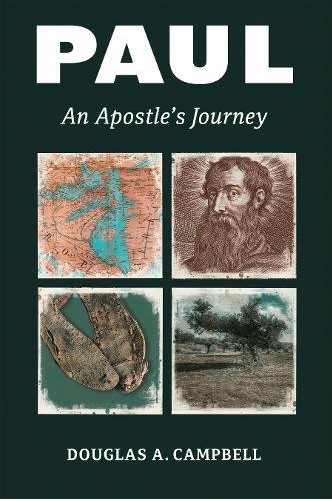 In my life time the most significant book on Paul has been E.P. Sanders, Paul and Palestinian Judaism (1977) because it both shifted interest in Judaism but completely shook up how scholars understood Paul. Since Sanders there have been major articulations of Pauline theology, including those of J.D.G. Dunn and N.T. Wright, but they build on and take further what was said by Sanders.
In my life time the most significant book on Paul has been E.P. Sanders, Paul and Palestinian Judaism (1977) because it both shifted interest in Judaism but completely shook up how scholars understood Paul. Since Sanders there have been major articulations of Pauline theology, including those of J.D.G. Dunn and N.T. Wright, but they build on and take further what was said by Sanders.
In Mike Bird’s new book, The Apostle Paul, there are four views of Paul: the Reformed view by Tom Schreiner, the Catholic view by L.T. Johnson, the post New Perspective view by Douglas Campbell, and the Jewish view of Mark Nanos. Today’s post will look at Campbell’s piece.
What do you see as the major problems with the traditional reading of Paul? What do you see as the major problems with the New Perspective on Paul? Do you think Campbell’s reading helps us forward?
In essence, and Campbell gets this right when many don’t, the core of the New Perspective is a new view of Judaism and a new view of Paul rooted in that new view of Judaism. The “old” perspective on Paul, it is argued, overcooked Judaism into a works-based religion. This led to religion being man’s attempt to justify himself, and the whole gospel of Paul was read as a response to this fundamental anthropological pride. Hence, we read in folks like Tim Keller of two options: performance vs. grace/faith. I see this all over, so Keller’s not alone. The New Perspective calls this into question because it argues that this “performance” stuff emerges from a false view of Judaism and therefore from a Judaism Paul could not have been opposing. Paul’s concerns were elsewhere. Put differently, the old perspective thinks Paul’s concerns were anthropology: the human arrogance of self-justification before God, and that means the essence of gospel preaching is to get humans to perceive their pride. Again, this is not what the New Perspective thinks Paul was on about.
Campbell, however, goes beyond anything being said by the New Perspective, though he agrees completely with its view of Judaism. He thinks the New Perspective explanations of Paul — Dunn, Wright, oddly not really dealing with Sanders — are not good enough and so he revises those explanations. I would say he radically revises.
1. Campbell thinks Paul’s theology turns on three axes: that it is revealed by God to him, that it is Trinitarian (and here he is thoroughly Nicene and orthodox), and missional (his message arises from his mission).
2. Campbells thinks soteriology and gospel are one and the same. [I disagree, but only in emphasis or order.] And he thinks that gospel is found, not in Romans 1:18-3:26, which is classic, but in Romans 5–8. He finds here a God whose work in us cannot be stopped, and he finds an ethic that transforms through the Spirit and transcends the Jewish Torah. [This last point leads to Mark Nanos’ strong disagreements.] He is Barthian and Torrancian in his approach.
3. Campbell doesn’t really follow the assignment, which was followed by Schreiner and Johnson, which means we get his closer reading of how to read Romans 5–8.
4. The three persons of the Trinity are indistinguishable in Romans 5–8. Humans are fundamentally relational beings. Christ determines humans not Adam. Since Christ is the solution, Moses is not. (He calls this “thinking backward,” which is a variant of the “from solution to plight.”) The ecclesial approach of Paul is family and he uses the term “brothers” for the Body of Christ.
Both Johnson and Schreiner criticize Campbell for insufficient attention to the rest of the Pauline corpus.











